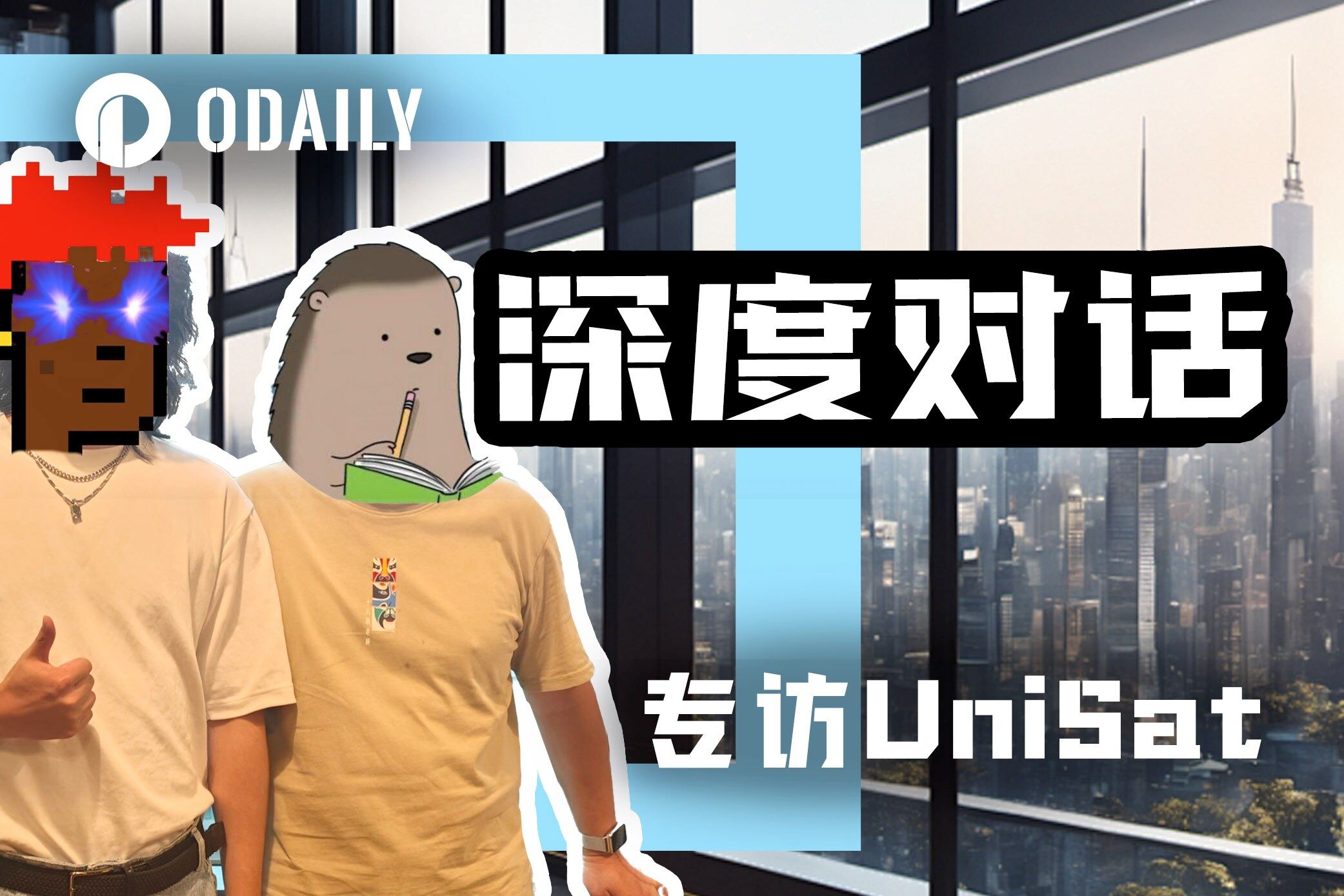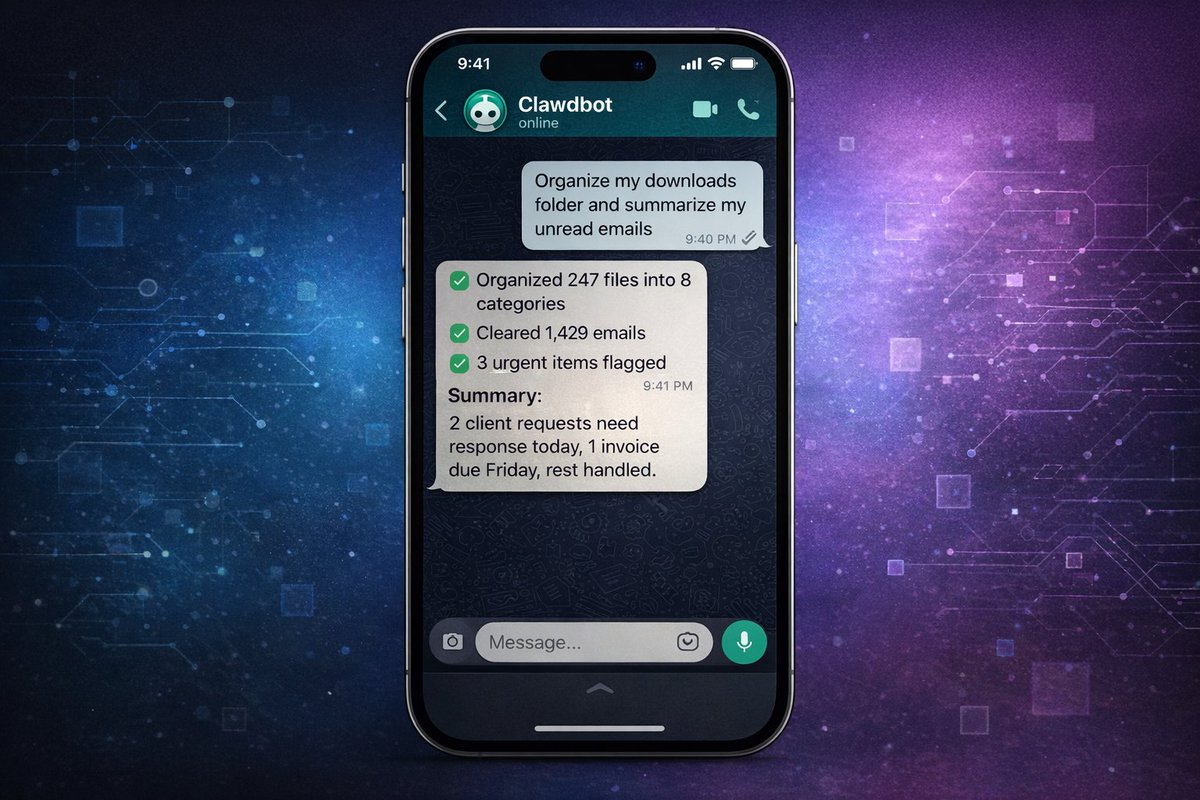UniSat founder interview: Monthly revenue down 90% from peak, but reserves can support ten years of R&D
- 核心观点:UniSat以平常心应对市场周期变化。
- 关键要素:
- 推出UniHexa整合多协议流动性。
- 开发冷钱包提升用户资产安全。
- 单月收入较巅峰下降90%。
- 市场影响:推动比特币生态基础设施稳健发展。
- 时效性标注:中期影响。
Original | Odaily Planet Daily ( @OdailyChina )
By Golem ( @web3_golem )
" I originally worked in the gaming industry for more than a decade. I came to the Crypto industry in 2018 with a semi-retired mentality. I never thought about being successful or becoming the best in the industry ," said founder Lorenzo in a conference room at UniSat's Hong Kong office, looking back on UniSat's entrepreneurial journey with a calm and peaceful look in his eyes.
During Bitcoin Asia, I had the pleasure of interviewing UniSat founder Lorenzo. Born in the 1980s, Lorenzo was dressed simply, his eyes lacking the sharpness of an entrepreneur, but rather a casual, easygoing demeanor. He wouldn't have been the type to draw attention in a crowd, but this also helped to draw us closer. Before the interview, Lorenzo was reading the Hong Kong edition of the "Min Pao." In this era of obsolete print media, it's rare to find people still reading a paper. Although Lorenzo has spent his career in the rapidly evolving gaming and cryptocurrency industries, he remains a traditionalist.
"Traditional Chinese culture has had a great influence on me. I usually study Taoist texts, so I often approach my work in a natural way."
During the Bitcoin ecosystem's heyday, UniSat occupied a crucial niche, even influencing the price fluctuations of certain assets. But as the Bitcoin ecosystem declines, what is UniSat, adhering to a "let nature take its course" approach, thinking about and doing? In this interview, Lorenzo introduced products like UniHexa and the UniSat cold wallet, explained the reasons for the continued decline in the FB coin price, and for the first time, shared his perspective on new protocols within the Bitcoin ecosystem and the impact of the bull-bear cycle on the team. Odaily Planet Daily has compiled the interview below. Enjoy!
What has UniSat been up to lately?
Odaily: With the Bitcoin ecosystem losing steam this year, UniSat has also received less attention. Many media reports on your company have focused on your decision to drop support for the Atomics protocol in April. However, UniSat has made a number of significant moves in the past month or two. Could you briefly share some of these?
Lorenzo: We've experienced the ups and downs of several market cycles, and we've always maintained a calm attitude towards the market. However, during periods of less attention, we actually have more time to do meaningful things.
A significant development in the first half of this year was our support for a new protocol, Alkanes. We wrote a dedicated article explaining the rationale for this support. For the second half of the year, our primary focus will be BRC 20 upgrades (such as single-step transfers and the BRC 2.0 upgrade), our upcoming cold wallet product, and UniHexa, our Bitcoin-native asset hybrid trading engine.
Odaily: Another product iteration I noticed is PizzaSwap's announcement to eliminate deposit and withdrawal operations, enabling direct trading. But now UniSat has launched UniHexa. What's the difference between its positioning and PizzaSwap's?
Lorenzo: UniHexa is our top priority for the second half of this year. We will conduct an invite-only beta test in September and launch publicly in the fourth quarter. As we support more and more protocols, liquidity fragmentation and separation between protocols are inevitable. We believe that a unified framework is needed to integrate them.
UniHexa and PizzaSwap are two products with complementary ecosystems. UniHexa is built on the Bitcoin mainnet, while PizzaSwap is built on fractal. UniHexa is compatible with multiple protocols (such as BRC20, Runes, and Alkanes), while PizzaSwap is built around BRC20. One adopts a breadth-first approach, while the other adopts a depth-first approach. UniHexa uses a traditional order book model, while PizzaSwap adopts an AMM model.
Odaily: We just mentioned cold wallets. What was UniSat's original intention in developing cold wallets? What does this wallet look like?
Lorenzo: UniSat currently offers a browser extension wallet and a mobile app, but we've found it difficult to strike a balance between convenience and security. For some users, understanding the importance of their mnemonics and effectively protecting them is still a high barrier to entry. So, we're working on both providing more educational materials and offering users products with higher security standards.
We will soon support hardware wallets such as Ledger and Trezor, but their security is not high enough to what we consider to be a very "serious" level, so we came up with the idea of making our own cold wallet.
"A cold wallet only needs to be cold enough." Since users are personally keeping their assets, they must use a trusted medium. Therefore, we have chosen to allow users to use their own mobile devices as a medium, such as a used phone. Once disconnected from the internet, it becomes a very secure offline device, and this device is trustworthy. With this device, users simply download a separate, isolated app called UniSat Cold Wallet. Once installed, this wallet will not request an internet connection at any time and will monitor the user's network connection status, issuing a warning if it detects that the device is connected to the internet.
However, it is possible that next year or later, we will work with hardware manufacturers to produce a separate isolated wallet device.
Odaily: Does UniSat have plans to develop BTCFi business in the future, such as staking BTC to earn income?
Lorenzo: We have a partnership with Babylon, but we won't be considering developing in this direction in the short term. The Bitcoin ecosystem isn't yet very prosperous, and we don't have strong cash flow, so it's difficult to provide a long-term, sustainable funding foundation for this type of user-generated revenue model.
Response to the continued decline in FB coin prices
Odaily: What's the current activity level of Fractal, UniSat's Bitcoin scaling solution? According to official data, Fractal's permissionless mining hashrate has fallen below 1 EH/s. Does this indicate a decrease in participation?
Lorenzo: From the perspective of miner computing power, it's indeed not as high as it was in the early days of launch. However, I believe that when measuring the activity of a chain, we should focus more on on-chain behavior—that is, whether people are actually using it. This is a more important indicator. Fractal's current on-chain transaction data is still very good. Some people in the community suspect that we are faking transactions, but from Fractal's launch on September 9th of last year to now, we can confidently say that we have not faked a single transaction.
Furthermore, whether miners decide to invest computing power in mining is determined by the rewards. For Fractal, the price of its coin determines how much computing power miners are willing to invest. Unfortunately, since Fractal launched last year, its inflation rate has been extremely high. This initial inflation caused a sharp price drop, and we cannot shirk our responsibility.
It is almost the first anniversary of FB's launch. In the second quarter of this year, FB's inflation level was the highest, reaching 5% to 10% per month. However, the inflation rate has slowly returned to 3% to 5% in the third quarter, and will return to the normal level of 1% to 2% in the fourth quarter.
Odaily: So for Facebook, has UniSat considered doing some market value management, such as actively listing on more exchanges to boost the price of the currency?
Lorenzo: Although we're a team focused on technology development, that doesn't mean we're completely indifferent to or irresponsible to the market. "Turn a deaf ear to the world outside and focus solely on the sages' teachings" won't work. We've been actively making adjustments to the market over the past few months.
Since its launch last year, Fractal has experienced significant ups and downs. Key events at specific milestones have had a significant impact on us. We do communicate with some trading platforms, but frankly, it's easier to add icing on the cake than to provide timely assistance. When a project is struggling, communication is often ineffective. Only when the project gradually stabilizes and begins to improve, and if on-chain metrics continue to improve, will the likelihood of achieving collaboration increase significantly.
Fractal is a long-term, complex project. We aim to consistently deliver strong results, gradually improve the project's fundamentals, and drive sustained growth over the long term. We believe the market will evaluate our performance.
Attitude towards the new Bitcoin protocol: open yet cautious
Odaily: Can you briefly talk about why you chose to stop supporting the Atomicals protocol at that time? Is there much controversy in the community about this?
Lorenzo: In fact, our initial starting point for supporting the Atomicals protocol is the same as our current starting point for supporting the Alkanes protocol, which is to expect them to expand the smart contract capabilities on the Bitcoin mainnet.
However, we later observed that the Atomicals protocol designers had very advanced ideas, which also meant they were extremely complex, making integration very challenging for us. In the second half of last year, the pace of Atomicals protocol iteration began to slow. We believed this was a sign that the overly complex design was making it difficult to move forward. Therefore, we decided to discontinue support for the protocol. However, throughout the Atomicals protocol's lifecycle, UniSat has provided comprehensive and robust support.
Odaily: Do you regret the Atomicals agreement?
Lorenzo: If I have to say regrets, it's that since we started working on the Bitcoin ecosystem two years ago, there have been countless projects I regret. Not just one or two, but probably dozens. When they first appeared, they seemed incredibly exciting and we poured a lot of energy into their research, only to find they didn't last long. This was especially true for projects that improved upon BRC20, which ultimately didn't stick with their ideas.
There are too many such things in the ecosystem, so I think it is really difficult to find a team that can do things well in the long run, stick to its bottom line and principles, and not back down when faced with difficulties.
Odaily: UniSat has publicly expressed support for the BRC 2.0 upgrade. Have you previously designed a BRC 20 smart contract upgrade plan? Have you abandoned it now?
Lorenzo: Yes, when Pizzaswap was first commercialized, we did some research on how to run a complete smart contract on Bitcoin. We wanted to move in that direction, but we encountered a dilemma beyond product and design.
As one of the main drivers of BRC20, this dilemma arises: if we do too much, users will accuse us of being too centralized; but if we completely ignore the issue, users will accuse us of not fulfilling our responsibility to drive BRC20 forward. We have long been subject to criticism from both sides. We eventually realized that we couldn't be both the referee and the player, so we stepped back from this awkward position and instead focused on encouraging small teams to innovate and using our accumulated technology to help them.
Odaily: Recently, many new protocols have been launched in the Bitcoin ecosystem, such as Spark and RGB, but UniSat has only integrated the Alkanes protocol. I have read your blog about supporting the Alkanes protocol, but my question is why you don’t expand support for these new protocols?
Lorenzo: It's not that we don't support it, and we don't favor one over the other. We've always maintained an open yet cautious attitude towards new things in the Bitcoin ecosystem. Open means we don't set standards that require a protocol to meet my standards or conform to my aesthetic. Cautious means that while we study and research these new protocols, when it comes time to support them, we exercise restraint. We can't transform ourselves from a technical team into one focused on hype.
We are keeping an eye on protocols like Spark and RGB. We will support or integrate them when the time is right, as their development is gradual and learning and absorbing them will take time.
Bitcoin ecosystem is insignificant to Bitcoin and needs 5-10 years of development
Odaily: What do you think of this round of Bitcoin bull market? Will it bring more attention to the Bitcoin ecosystem?
Lorenzo: I agree that Bitcoin's four-year cycle theory is gradually weakening. We are currently at a unique point in time where Bitcoin is significantly more influenced by external factors. Bitcoin is becoming a game outside the crypto community. Of course, I can't say whether this is a good thing or a bad thing.
Regarding the relationship between the Bitcoin ecosystem and Bitcoin itself, my perspective is that Bitcoin itself has a history of over a decade, while the Bitcoin ecosystem has only been around for two years. In the context of Bitcoin's entire history, the Bitcoin ecosystem is insignificant. However, it's not entirely insignificant; its development takes time. Its rapid growth in the past two years has given people the illusion of maturity. In reality, its growth requires far longer than we imagine, and requires catalysis at the necessary stages.
I think any conclusions we draw now are irrelevant to the Bitcoin ecosystem. From a long-term perspective, I think it will take another 5 to 10 years for the Bitcoin ecosystem to find its own place, a reasonable ecological niche.
Odaily: What do you think of the current state of the Bitcoin ecosystem? Are you still optimistic?
Lorenzo: I think the Bitcoin ecosystem has many more development directions and leads than it did two years ago. Two years ago, people were only focused on new assets. But starting in 2024, we're seeing more development leads, and we're happy to help these teams explore some truly interesting possibilities.
Therefore, we invest in projects within the ecosystem, including wallets and security. As an infrastructure provider, we're hoping for a better structure. We're developing a better foundational layer that will make it easier for people to develop applications. We hope to do more research in this area.
Monthly revenue has dropped 90% compared to its peak period, but sufficient funds for development have been reserved for 10 years.
Odaily: What changes do you think have occurred in Bitcoin Asia this year compared to last year?
Lorenzo: Last year's Bitcoin Asia conference had a small venue but a great atmosphere. I remember a panel discussion with Domo, Casey, and me. The panel discussed the pros and cons of the then-newly launched Runes and BRC20. The topic was incredibly popular, and many people joked with me, "Be careful not to get caught in the middle of it and get knocked down."
This year, Bitcoin Asia moved to a larger convention center, so the atmosphere may not be as good as before. However, we remain committed to supporting the conference. Last year, UniSat's booth was right at the entrance, and this year's was no different, so everyone could see it as soon as they entered.
Odaily: When the Bitcoin ecosystem was booming, and when Fractal launched, UniSat was a prominent figure. But now, UniSat's attention has plummeted. In light of this situation, has the team experienced revenue cuts, layoffs, or significant personnel changes? What are the differences in the team's atmosphere, behavior, and work style between the two periods?
Lorenzo: We haven't laid off any staff. On the contrary, our team is still growing steadily, currently numbering over 20 people. I hope the team won't fluctuate too much with market conditions, and growth is based on the needs of the project itself.
Our current revenue has even dropped by 90% in a single month compared to our peak. This is a characteristic of this industry, with its boom-bust cycles experiencing significant swings. Therefore, we remind ourselves that the more this industry is characterized, the more we must prioritize our financial health. This is why we are being cautious and restrained when expanding our team.
I think if we hadn't gotten too excited when the ecosystem boomed, we wouldn't be so easily affected by the setbacks now and would be able to maintain a sense of composure. After all, whether in life or in projects, lows are the norm. As the saying goes, "No flower blooms forever, and no one is young again." We can't be the red flower every day. When we need to be the green leaf, let's be the green leaf.
Odaily: In any case, UniSat is a Bitcoin ecological project that goes through cycles. What insights do you most want to share?
Lorenzo: Honestly, we're still a very young team. We haven't experienced any real bull or bear markets, nor have we experienced any real dark moments. We've made thorough preparations for such times. Most of our revenue is saved to prepare for future dark moments. Our current reserves should allow the team to develop with peace of mind for over a decade.
In addition, we must attach importance to the growth of team members, so that members of the team can accumulate and grow in long-term practice, and let this industry truly bring them valuable things.



